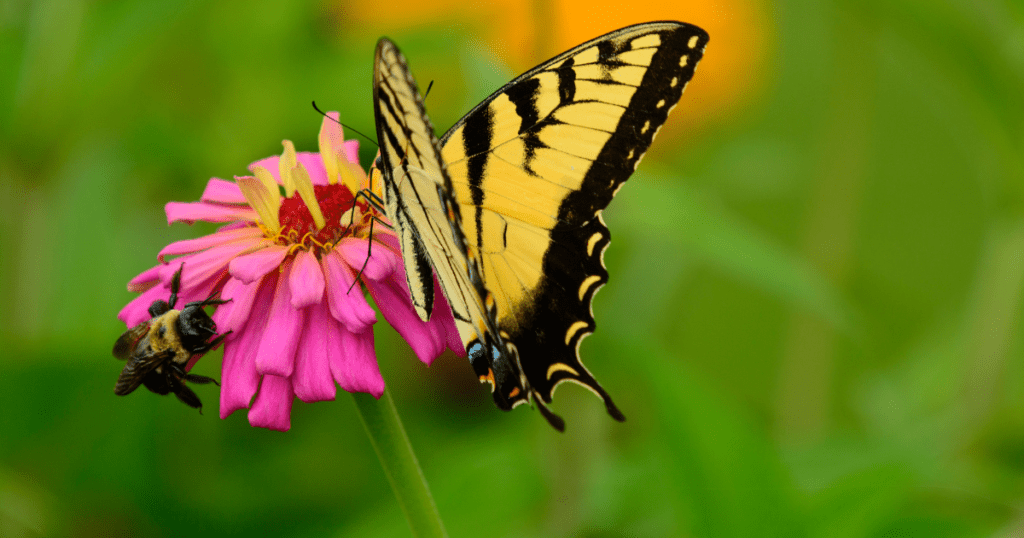June is National Pollinator Month

Bees, butterflies, moths, beetles and other garden helpers play an important role in the food chain by fertilizing plants that produce seeds, berries, fruits and other plant foods. But pollinators worldwide are in decline due to habitat loss, climate change, invasive species and pesticides. Check out the tips below to learn how to do your part to help pollinators.
Plant native flowering plants in your garden, reduce the size of your lawn and don’t plant non-native invasive plants.
Plant host plants to provide essential habitat. Butterflies need special host plants as food for their caterpillars. Native oak trees are host to over 400 butterflies and moths. Monarchs rely on only one host plant, milkweed.
Provide water for pollinators. Fill a shallow birdbath with gravel or create a muddy patch in a corner of your yard.
Plant dense shrubs where hummingbirds can nest and, to provide food, native plants with bright red and orange tubular flowers.Supplement as needed with a nectar feeder.
Leave hollow stems, fallen logs and bare patches of sandy soil. Most native bees are solitary and lay eggs in tiny tunnels in hollow stems, dead trees, fallen branches or sandy soil.
Avoid using pesticides. Most insects are a sign of a healthy garden and an important food source for birds.
Find more tips and resources at www.rockvillemd.gov/backyardhabitats.